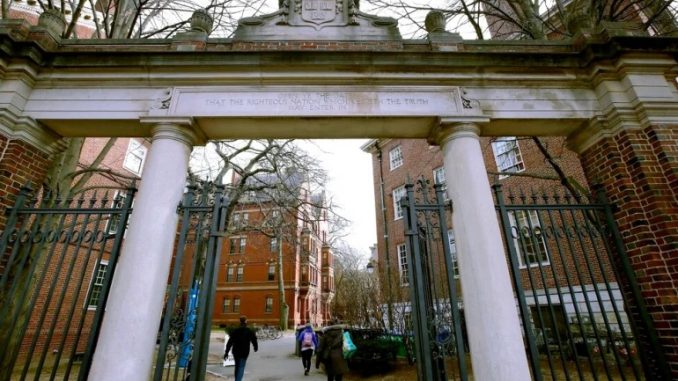
By Priscilla Mensah
Recently in the mainstream media, there seems to be a recommenced interest in the historical legacy of slavery, and more specifically, in the idea of reparations being paid to descendants of slaves. The most recent addition to the discourse is Harvard University’s seemingly genuine effort to call for an acknowledgement of the institution’s profound ties to slavery, which could quite possibly involve some sort of tangible action by way of reparations.
Though I am fully aware that in order to make progress you have to start somewhere – as change has historically tended to come about in an almost piecemeal fashion – I do have a few concerns, or at least some questions, about the efficacy of the latest public attempt made by a US-based institution to redress the wrongs of slavery.
For instance, for as much as the Harvard University slavery rectification project has been in the news, initially at least, I couldn’t tell you what exactly it entailed. In fact, the only source that has come close to explaining what exactly Harvard’s reparations project calls for has been Harvard’s website. This could be a problem because Harvard’s website is likely not one that many visit. If the people who such a project would impact don’t know the specifics of it, then how effective could it be in the long-run?
Moreover, I don’t think my lack of preliminary understanding of just how Harvard plans to come to terms with its past slavery ties is due to me not paying close enough attention to news stories or failing to read them closely.
Besides, most non-televised news stories that I view – especially given the increasingly short attention span of the average busy American reader – tend not to require a thorough read to get a good sense of its gist. Often, just reading the title of an article in passing can give one a good idea of what the piece is about if the title is strong and you have good deductive skills.
I’m hoping that this lack of clarity around the Harvard project, as reported in the local news, is not a reflection of its being akin to other vague and since abandoned attempts at reparations. It is also my hope that this project breaks from the racist logic which holds that African-Americans are either undeserving of reparations, or wouldn’t know what to do with them.
I must say, albeit in a somewhat contradictory fashion, that despite my concerns, I am fully aware of the larger implications that projects put forth by such a highly esteemed institution like Harvard University can have for other institutions, including our own Brooklyn College (which coincidentally happens to be known as “The Poor Man’s Harvard”).
My hope is connected to the fact that I have since learned that Harvard University’s slavery redress project could allow for students of African–American descent and Native American heritage at Harvard to be given reparations.
Though my skepticism about the efficacy of Harvard’s new program is not completely gone – which has not been helped when I read that the project includes some “recommendations” which are clearly not binding – I am hopeful for what such a move could mean for other historically marginalized, racially oppressed students of color at other institutions.
In other words, my skepticism does not mean that other institutions should not emulate Harvard University’s act concerning historical legacies of racism and slavery. Rather, my skepticism is a healthy one that is reflective of my long standing belief that societal institutions should be brought to task for centuries of neglecting and dancing around issuing long-overdue reparations to formerly enslaved people.
